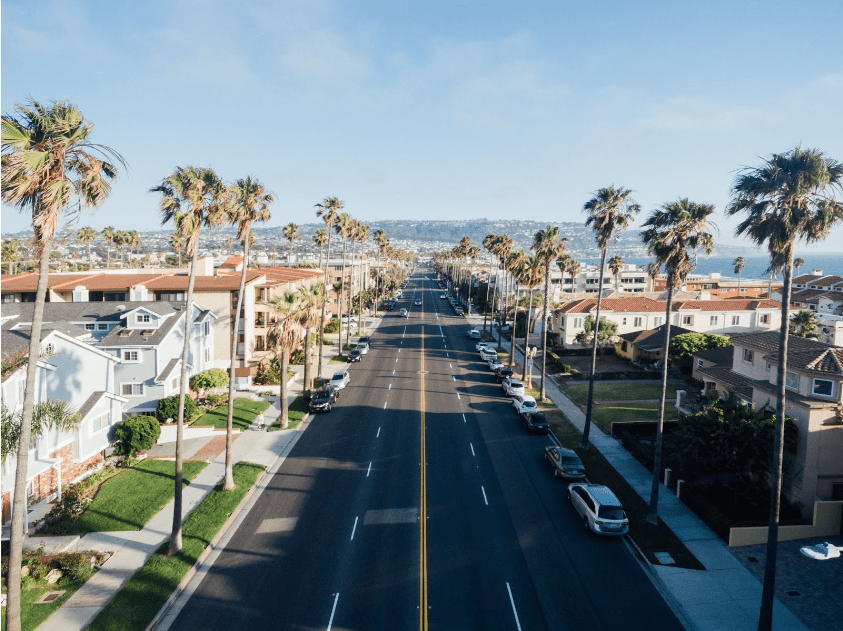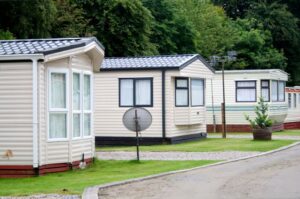When do I need BOP Insurance in CA? – Business Owner’s Policy
- Your Good Insurance Agency
- March 7, 2023
- 2:24 pm
As a small business owner in California, you have a lot on your plate. From managing employees to maintaining cash flow, something always needs your attention. That’s why having the right insurance coverage is important to protect your business and yourself.
One type of insurance coverage that may be the perfect fit for small businesses is a Business Owner’s Policy (BOP). This type of policy combines two essential types of coverage: general liability insurance and property insurance. By bundling these two types of coverage into one policy, a BOP policy can provide comprehensive protection for small businesses.
But when do you need a BOP policy, and how does it compare to other types of insurance coverage, such as a Commercial General Liability (CGL) or a Commercial Package Policy (CPP)? In this blog post, we’ll answer these questions and more, so you can decide what type of insurance coverage is right for your small business.
What is BOP insurance?
You may have seen the term BOP and thought, what does BOP stand for in insurance? BOP stands for Business Owner’s Policy. It’s a type of insurance policy designed specifically for small businesses.
BOP insurance was first introduced in the 1970s to provide affordable insurance coverage for small businesses. Since then, it has become a popular option for many small business owners. By bundling multiple types of coverage into one policy, insurance companies can offer BOP policies at a lower cost than if each type of coverage were purchased separately.

BOP insurance has been used by many small businesses, from retail stores to professional service providers. For example, a small retail store may use a BOP policy to protect against customer liability claims and damage to their physical property. A professional service provider, such as an accountant or consultant, may use a BOP policy to protect against claims of professional negligence or mistakes.
According to a survey by the National Association of Insurance Commissioners (NAIC), 93% of small business owners who had a BOP policy felt that it provided adequate protection for their business.
This high satisfaction rate demonstrates BOP insurance’s effectiveness in meeting small businesses needs.
In short, a BOP policy is an affordable and customizable option for small businesses that need a combination of general liability and property insurance. If you’re a small business owner in California, it’s worth considering whether a BOP policy is right for your business.
Who needs a Business Owner’s Policy?

If you own a small business in California, you may wonder if you need a BOP policy. The answer depends on several factors, including the size of your business, the type of work you do, and the level of risk involved. Generally, BOP insurance is a good fit for businesses that meet the following criteria:
- Have fewer than 100 employees
- Have a physical location, such as an office or storefront
- Have valuable business property, such as equipment or inventory
- Are at risk for lawsuits, such as those in the service industry
According to the Insurance Information Institute, small businesses that have a BOP policy are more likely to have better credit scores than those that do not.
If your business fits these criteria, a BOP policy may be a good choice for you. However, it’s always a good idea to speak with an insurance agent to determine what type of coverage is best for your specific needs.
What does a BOP insurance policy cover?
A BOP policy combines two essential types of coverage: general liability insurance and property insurance.
General liability insurance
General liability insurance covers claims of bodily injury, property damage, and advertising injury. For example, if a customer slips and falls in your store, general liability insurance can help cover their medical expenses and any legal fees associated with the incident.
Property insurance
Property insurance covers physical damage to your business property, such as your building, equipment, and inventory. For example, if your office is damaged by a fire, property insurance can help cover the cost of repairs or replacement.
In addition to these two types of coverage, some BOP policies may include other types of coverage, such as business interruption insurance or cyber liability insurance.
Is a BOP policy ever required?
If you’re renting a commercial office space, it is likely that your landlord will require you to have insurance to cover the cost of injury or accidents at your business. As far as the specific type of insurance policy you need to get, that depends on your needs and business size which we’ll go into below.

When to consider a BOP, CGL, or CPP insurance policy
Determining what type of insurance policy is best for your business can be challenging. While a Business Owner’s Policy (BOP) may be a good option for small businesses that need a combination of general liability and property insurance, a Commercial General Liability (CGL) policy or a Commercial Package Policy (CPP) may be more appropriate for larger businesses or businesses with specialized insurance needs. In this section, we’ll explore when it makes sense to consider each type of policy.
What is the difference between a BOP and CGL insurance policy?
Like a BOP policy, a Commercial General Liability (CGL) policy covers bodily injury, property damage, and advertising injury claims. However, a CGL policy does not include property insurance.
When to consider a CGL policy:
- A construction company that needs liability coverage for accidents on job sites but does not have a physical location requiring property insurance.
- A technology company that provides services online and does not have a physical location that requires property insurance but needs liability coverage for claims of data breaches or intellectual property infringement.
- A cleaning service that operates out of a home office and does not have a valuable business property that requires property insurance but needs liability coverage for accidents that occur while cleaning clients’ homes or businesses.
Then there may be the question, Which is better insurance, BOP or CPP? CPP stands for Commercial Package Policy. Like a BOP policy, a CPP policy combines multiple types of coverage. However, a CPP policy is more customizable than a BOP policy.
With a CPP policy, you can add or remove types of coverage as needed, whereas a BOP policy is a pre-packaged bundle of coverage that may not be as customizable. However, a BOP policy may be a more cost-effective option for small businesses that need a combination of general liability and property insurance.

When to consider a CPP policy:
- A large corporation with multiple locations needs a customized insurance policy to cover the unique risks associated with each location.
- A manufacturer that needs product liability coverage and property insurance for expensive manufacturing equipment and inventory.
- A business that needs coverage for cyber liability or other specialized types of liability that are not included in a BOP policy.
A BOP policy may be a better fit for your business if you have a physical location, valuable business property, or are at risk for property damage.
When to consider a BOP policy:
- A small retail store that needs liability coverage for customers who visit the store and property insurance for the store’s inventory and equipment.
- A consultant or freelancer who needs liability coverage for professional services provided to clients and property insurance for office equipment and supplies.
- A restaurant that needs liability coverage for customers who dine in the restaurant and property insurance for kitchen equipment and inventory.
Ultimately, the decision between BOP, CPP, and CGL policies will depend on your specific needs as a business owner.
As an easy guide, refer to the following table to consider the factors we’ve highlighted:
Policy Type | Pros | Cons | Pricing | When to Consider |
BOP policy | Combines general liability and property insurance into one policy. Cost-effective for small businesses. | May not cover all types of liability. Limited customization options. | A BOP policy can cost anywhere from $500 to $3,000 annually. | Consider a BOP policy if you own a small business with fewer than 100 employees, have a physical location or valuable business property, and are at risk for lawsuits. |
CGL policy | Provides coverage for claims of bodily injury, property damage, and advertising injury. More customizable than a BOP policy. | Does not include property insurance. May be more expensive than a BOP policy. | A CGL policy can cost anywhere from $500 to $5,000 annually. | Consider a CGL policy if you do not have a physical location or valuable property, or if you need more customization options than a BOP policy provides. |
CPP policy | Combines multiple types of coverage into one policy. Highly customizable. | May be more expensive than a BOP policy. More complex than a BOP policy. | The cost of a CPP policy will depend on the specific types of coverage included. | Consider a CPP policy if you have a large business or unique insurance needs not covered by a BOP or CGL policy. |
How much is BOP insurance?
The cost of BOP insurance varies depending on several factors, including the size of your business, the type of work you do, and the level of risk involved. A BOP policy can cost anywhere from $500 to $3,000 annually. However, this is just an estimate, and the actual cost of your policy will depend on your specific needs.
What to know about a Business Owner’s Insurance Policy
Before you purchase a BOP policy, you should know a few things:
- A BOP policy is designed for small businesses. If your business is larger or has unique insurance needs, consider other types of coverage.
- A BOP policy is customizable. While it’s a pre-packaged coverage bundle, you can add or remove types of coverage as needed.
- A BOP policy is cost-effective. By bundling multiple types of coverage into one policy, you can save money on your insurance premiums.
- A BOP policy is not a substitute for workers’ compensation insurance. You may need to purchase workers’ compensation insurance separately if you have employees.
- A BOP policy may not cover all types of liability. If your business is at risk for certain types of liability, such as professional liability, you may need to consider other types of coverage.
How is the premium paid for a Business Owner’s Policy?
The premium for a Business Owner’s Policy (BOP) is typically paid annually, but some insurance companies may offer the option to pay monthly or quarterly. The cost of the premium can vary depending on several factors, including:
- The size of your business.
- The location of your business.
- The type of work you do and your industry.
- Claims history.
- The level of risk involved.
- The amount of coverage you need.
Generally, the more coverage you need, your premium will be higher.

It’s important to note that BOP insurance premiums are based on an estimate of your business’s risk. If your business’s level of risk changes, for example, if you add new products or services or move to a riskier location, your premium may also change.
In addition to the premium cost, you may need to pay a deductible if you need to file a claim. The deductible is the amount you pay out of pocket before your insurance coverage kicks in. Typically, a higher deductible will result in a lower premium cost, but you’ll need to pay more out of pocket if you need to file a claim.
Overall, the premium for a BOP policy is typically paid annually and is based on several factors, including the size and industry of your business, your claims history, and the amount of coverage you need.
Conclusion
As a small business owner in California, having the right insurance coverage is crucial to protecting your business and yourself. By understanding the benefits and differences between a Business Owner’s Policy (BOP), Commercial General Liability (CGL) policy, and Commercial Package Policy (CPP), you can make an informed decision about what type of insurance coverage is best for your small business.
You’ll want to consider a BOP policy for the following reasons:
- Provides comprehensive coverage for small businesses by bundling general liability and property insurance into one policy.
- Cost-effective and customizable, making it a flexible option for small businesses with unique insurance needs.
- Offers protection against common risks, including liability claims and damage to business property.
- Bundling multiple types of coverage into one policy can be more affordable than purchasing each type separately.
- Streamlines insurance protection for small business owners, making it easier to manage and understand.
For more information or a free quote, contact us at Your Good Insurance Agency to get started. Your Good Insurance Agency is based in San Diego, CA, and is here to help individuals and businesses find high-quality insurance at a reasonable price with a fast turnaround time.
Insurance Made Easy
Get A Quote Now
As a broker we will price this with up to 30 carriers to get you the absolute best price.
About Your Good Insurance Agency

Based in San Diego, California, Your Good Insurance Agency was started in 2008 with the goal of helping people find high quality insurance at a reasonable price.
We work with over 30 carriers to help you get the best rate with good coverage options. We specializes in personal lines insurance with an emphasis on homes, dwellings (rental properties), and autos. We also help investors with property flip Insurance.
Most of our clientele resides in California however we are also licensed in Utah, Nevada, & Arizona.
Join Our Newsletter
Receive updates about new blog posts, industry news, discounts, & more.



